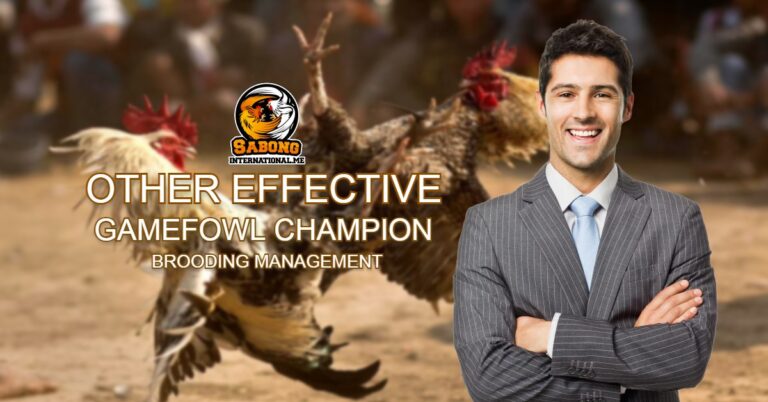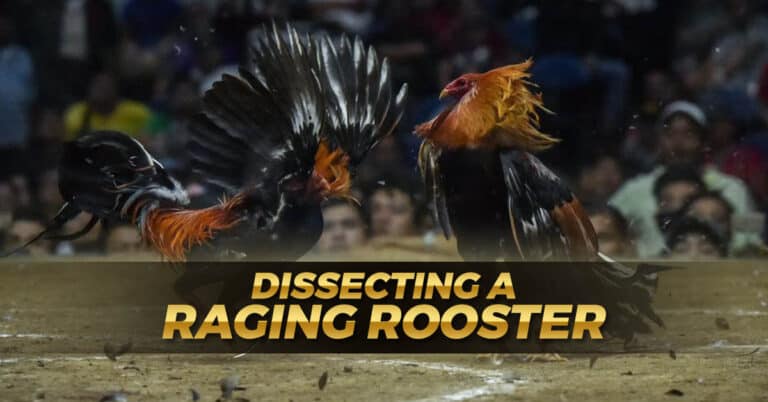Avian Malaria Symptoms and How to Avoid Them
Like humans, gamefowls can get infected with malaria when bitten by a mosquito, and it’s possible for said chickens to die slowly. Because of this, it’s important that breeders take good care of their chickens since there’s a real chance for the hens and roosters raised to be great gamefowls to get weak and eventually die after some time. Malaria can effectively ruin the development of a bloodline.

Sabong International aims to discuss about avian malaria to help breeders understand this illness and help cure it.
What is Avian Malaria?
Avian malaria, or bird malaria, is a common disease caused by Plasmodium parasites that infect both wild and domestic birds. This is transmitted via mosquito bites, injecting Plasmodium parasites into a bird’s bloodstream. Because avian malaria can affect domestic birds, there is a real chance of hens and roosters used for breeding gamecocks getting infected by the parasites. The parasites then multiply rapidly and infect a bird’s red blood cells, causing anemia and other symptoms.
Avian Malaria Symptoms
Because avian malaria doesn’t outright kill or negatively affect a chicken, it’s important for breeders to look for symptoms to be able to treat their chickens before their condition worsens. The symptoms of avian malaria can vary on the bird’s specie and the severity of infection. Some of the common symptoms of avian malaria in chickens are the following:
Lethargy and Loss of Appetite
One common symptom is lethargy, so breeders will need to check whether some of their chickens are becoming more and more inactive during the day. Active chickens that suddenly spend more time resting or sleeping or appear weaker or more sluggish than usual are good candidates for sick chickens.
Infected chickens can appear to be panting or gasping for breath and be reluctant to move or eat food. Tired chickens who stopped eating as much as they did in the past are likely to have avian malaria.
Diarrhea
It’s possible for infected chickens to suffer from diarrhea and get dehydrated and weak. They’ll usually be thirstier and continuously drink water with little effect.
Anemia
Because the parasites infect the red blood cells, an infected chicken’s combs, and wattles will usually appear pale. The combs and wattles will appear pale because of the reduced blood flow and oxygen in the chicken’s body. Additionally, the feathers can appear dull and lifeless and the beak and feet appear pale.
Decreased Egg Production
Avian malaria can reduce both egg production and quality, which can severely hamper a breeder’s efforts to develop gamefowl bloodlines. Ill-equipped breeders will find it difficult to treat their sick chickens and effectively ruin any dreams of developing a Gamecock bloodline and profiting from them.
Death
Chickens suffering from avian malaria can also die. This is because of the other symptoms that severely weaken the chickens, including lethargy, anemia, seizures, tremors, and more. Both hens and roosters can die from avian malaria and lose chickens that are instrumental in developing a certain bloodline or sabong breed.
Death is the most severe symptom, especially since nothing can reverse a dead chicken’s state, whereas an infected one can still be treated.
Avian Malaria Prevention
Breeders can keep their chickens from getting infected by avian malaria by ensuring that they’re fed properly and the mosquito population is controlled. It’s important that breeders use high-quality feeds and supplements to keep their chickens as healthy as possible at all times. It’s also important to only give chickens fresh water to ensure that their bodies can function well. Only giving fresh water also means that chickens won’t drink from stagnant water where mosquitoes might be living.
Of course, it’s also important to keep the farm clean to control or eliminate the mosquito population. Stagnant water bodies where mosquitoes can live should be removed and cleaned to limit where they can be found. Chicks still in brooders should be secured with mosquito netting to give them another layer of protection to prevent avian malaria.
Avian Malaria Cure
If chickens do end up getting infected, breeders must take immediate action to cure their sick chickens. The following are the different things that breeders must do to treat their chickens.
Isolate the sick
Isolating an infected chicken allows breeders to better monitor the sick bird and allow them to better take care of them. This makes it easier to treat the chicken since breeders won’t likely miss any symptoms that would otherwise severely weaken the bird.
Treat with Pyristat
Pyristat is a fast-acting sulfa meant to control avian malaria and coccidiosis. This comes in powder form for chicks and tablet form for adults. The advisable intake for avian malaria prevention and cure are the following:
Treat with Viminolak Iron Cell
Viminolak is a product that provides energy to improve a bird’s growth, vigor, stamina, and musculoskeletal frames. This gives sick birds the iron they need to help regain the blood they lost while infected.
The intake dosage of Viminolak Iron Cells will vary according to the chickens themselves. The variations are the following:
Conclusion
Avian malaria can easily destroy a breeder’s efforts of developing an excellent gamefowl bloodline when a brood cock gets infected or when hens and chicks get weak and die. Because of this, breeders must ensure that all of their chickens are as healthy as possible and that their farms are clean when attempting to breed some of the best gamefowl breeds to create deadlier bloodlines.
We covered J9G Gamefarm developing two certain bloodlines. If J9G Gamefarm fails to keep their chickens safe from malaria, the deadly J9 Grey and J9 White Pearl bloodlines can die out when brood cocks and healthy hens get weak and negatively affecting egg production and quality.










